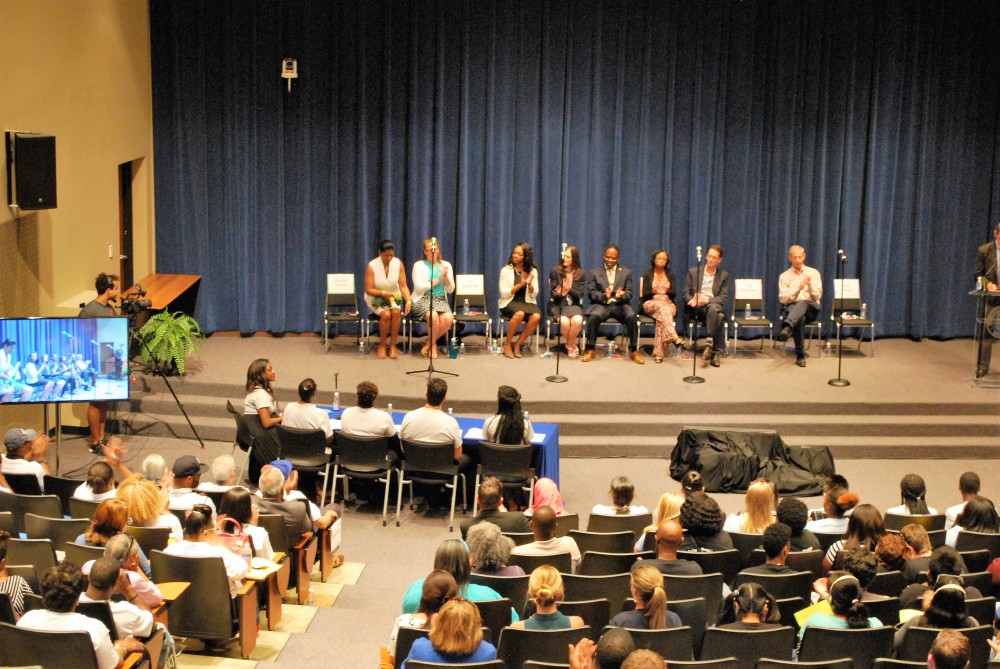What happens when a large, urban school district expands charters and maximizes “school choice?”
One policy advocate in Detroit described the environment this way:
“I often describe this whole environment as ‘The Hunger Games’ for schools,” said Tonya Allen, president of the Skillman Foundation, which invests $17 million a year to try to improve the lives of Detroit’s poorest children. “You get these kids who are moving three or four times in the elementary school years. I did that, but it was because my mother couldn’t keep her rent together. Here, it’s being incentivized.”
This from a recent story in the New York Times about education in Detroit and the impact of an education environment that places a premium on choice.
The story is worth noting in Tennessee because the National Charter School Conference just left Nashville and because so many education reform advocates in Nashville and at the Tennessee General Assembly are pushing an agenda of “free market education.”
So, what happens when you have virtually unlimited choices?
Michigan leapt at the promise of charter schools 23 years ago, betting big that choice and competition would improve public schools. It got competition, and chaos.
“The point was to raise all schools,” said Scott Romney, a lawyer and board member of New Detroit, a civic group formed after the 1967 race riots here. “Instead, we’ve had a total and complete collapse of education in this city.”
It all started with a focus on bringing a free market approach to public education:
The 1993 state law permitting charter schools was not brought on by academic or financial crisis in Detroit — those would come later — but by a free-market-inclined governor, John Engler. An early warrior against public employee unions, he embraced the idea of creating schools that were publicly financed but independently run to force public schools to innovate.
So, how’s that free market working out?
By 2015, a federal review of a grant application for Michigan charter schools found an “unreasonably high” number of charters among the worst-performing 5 percent of public schools statewide. The number of charters on the list had doubled from 2010 to 2014.
And here’s what the competition among schools for students looks like:
The competition to get students to school on count day — the days in October and February when the head count determines how much money the state sends each school — can resemble a political campaign. Schools buy radio ads and billboards, sponsor count day pizza parties and carnivals. They plant rows of lawn signs along city streets to recruit students, only to have other schools pull those up and stake their own.
Another key policy analyst describes the issues this way:
“People here had so much confidence in choice and choice alone to close the achievement gap,” said Amber Arellano, the executive director of the Education Trust Midwest, which advocates higher academic standards. “Instead, we’re replicating failure.”
Oh, and here’s what happened when city leaders and legislators tried to introduce a level of accountability to rein-in the chaos created by too many operators and a wide open market:
In the waning days of the legislative session, House Republicans offered a deal: $617 million to pay off the debt of the Detroit Public Schools, but no commission. Lawmakers were forced to take it to prevent the city school system from going bankrupt.
Translation: Still no real oversight, still a wide-open, chaotic market for schools.
Often we hear legislators and choice advocates say that the situation in certain urban districts is so bad we may as well try to expand choices and even add vouchers or expand charter options because it can’t get worse.
Guess what? In Detroit, it got worse. A lot worse. As the article notes:
Detroit now has a bigger share of students in charters than any American city except New Orleans, which turned almost all its schools into charters after Hurricane Katrina. But half the charters perform only as well, or worse than, Detroit’s traditional public schools.
Chaos. Uncertainty. Instability. That’s what a free market approach to public education brought Detroit. And, sadly, it also resulted in academic outcomes even worse than those expected in one of the worst public school districts in the country.
Choice advocates would have us believe that having more options will lead to innovation and force the local district to improve or close schools. Instead, in the case of Detroit, it led to chaos. The same fate could be visited upon other large, urban districts who fall into the free market education trap. Another unfortunate lesson from Detroit: Once you open the door, it’s very, very difficult to close.
For more on education politics and policy in Tennessee, follow @TNEdReport
